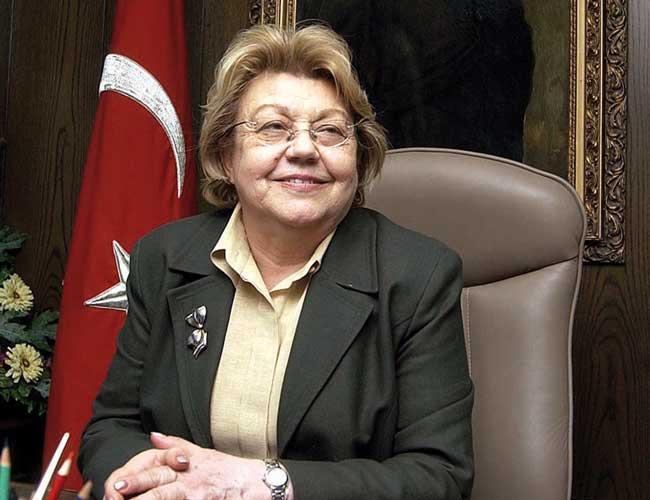
Tülay Tuğcu, the first and only female president in the history of the Turkish Constitutional Court, has criticized the lack of female judges serving the highest court in Turkey.
“In the process of recruiting judges and prosecutors, I look for proficient training experience. Regarding this, I see that our women are quite successful. As a simple observation, you see this even if you look at the success rates of the graduates of law faculties. But I am having difficulty understanding why there is not a single woman serving the Constitutional Court,” Tuğcu told daily Hürriyet in an interview on March 8, International Women’s Day.
Including its president, Zühtü Arslan, the current number of judges in the Constitutional Court stands at 15, all of whom are male.
Tuğcu, who served as the president of the Constitutional Court between 2005 and 2007, also criticized good conduct abatement given in domestic violence cases in the country.
“Good conduct abatement is an exceptional case left to the discretion of the judge, who personally observes the suspect and analyzes their psychology. Coming into court well-dressed and wearing a tie or very ordinary situations such as crying during the hearing should not be indicators to whether or not they [defendants] get good conduct abatement,” she said.
Tuğcu called the society “hypocritical” for aggrandizing women for their duties as mothers while also oppressing them.
“This is why, on the legal regulations, it has become compulsory for necessary initiations to be taken for these moral, cultural, and social acceptances, which contribute to this hypocrisy, to change as immediately as possible,” she said.
Tuğcu called on women to raise their voices against domestic violence and have self-confidence, stressing that it is crucial for women to show they have strong presence.
“Women all over the world have problems, although they vary. These problems increase or decrease based on the country’s backwardness. The civil law and labor law in the constitution emphasizes on gender equality, but despite existing decrees, equality is not ensured. As the society becomes more aware, it has started to realize that violence, abuse, and exploitation women face are serious problems that are deteriorating social values and leading to psychological traumas,” she said.
When asked to give examples of decisions handed down by the Constitutional Court in favor of women during her time as president, Tuğrul said the top court had annulled a decree of the civil code that stated women needed their husbands’ consent to work outside of home.
It was also during her presidential term the Constitutional Court presented the option to children of divorced couples to take their mothers’ last names.
Tuğrul advised young judiciary members that while making decisions they should seek the society’s best interests, unaffected by “extralegal influences.”
She believes decisions should be made in way that convinces the society that Turkey is a state of law.